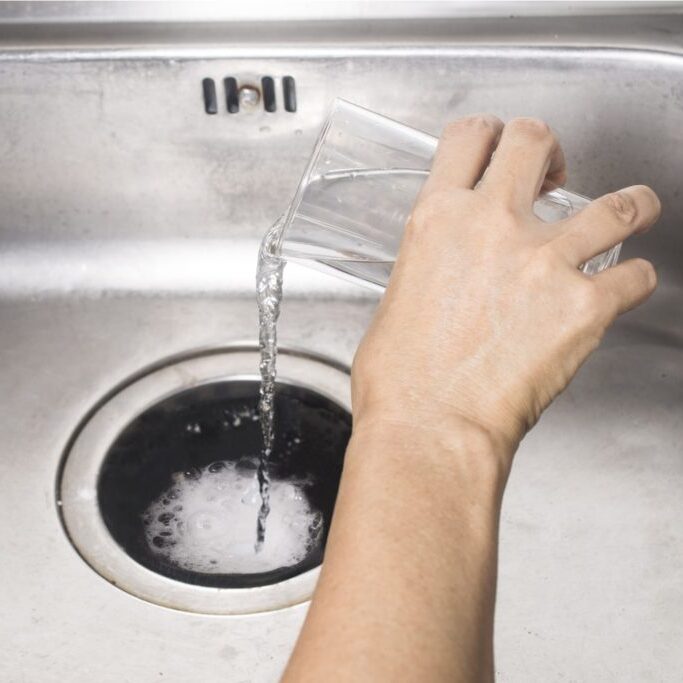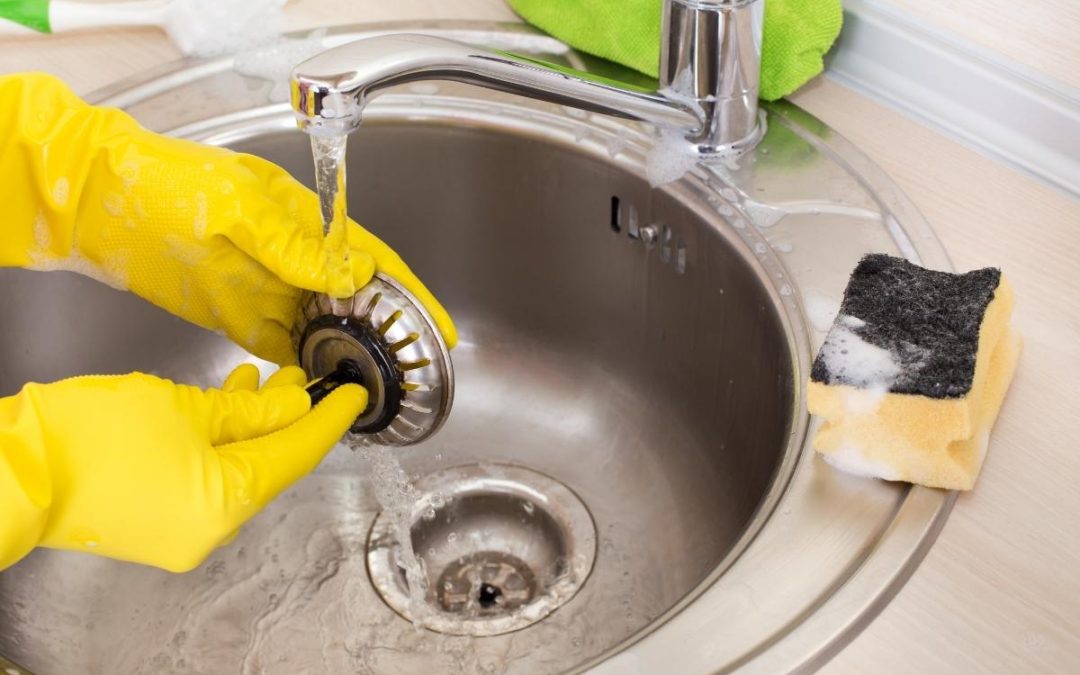Listed here in the next paragraphs you might get a bunch of wonderful facts with regards to Three Common Ways to Fix a Slow Drain.

Intro
We have actually all existed: You're cleaning your teeth or cleaning your hands, and you observe the water merging in the sink. As opposed to swiftly swirling down the tubes, it lingers, transforming your once-refreshing early morning routine right into a mini swamp scene. A slow-draining sink isn't just frustrating; it's often an indication of larger plumbing problems prowling under the surface. The bright side is that most slow-draining sinks can be repaired with a little know-how, a couple of standard tools, and some persistence. All set to tackle this task head-on? Allow's roll up our sleeves and dive right in.
Recognizing the Reasons For a Slow-Draining Sink
Before you start poking around in your pipelines, it aids to understand what might be causing the stagnation. Recognizing the source makes it much easier to pick the ideal fix.
Tools and Materials You'll Need
The right devices make all the difference. Luckily, you won't need a completely equipped plumber's van to finish the job.
Step-by-Step Guide to Taking Care Of a Slow-Draining Sink
Now, let's get into the nitty-gritty. This detailed process will guide you via easy techniques to recover your sink's drain.
Step 1: Get Rid Of and Clean the Stopper
Commonly, the stopper (that tiny plug you push down to obstruct water) is the very first offender. Remove it thoroughly and wipe any hair or crud trapped around its base. Rinse it completely before putting it back in position.
Step 2: Make Use Of a Plunger to Remove Particles
Got that bettor ready? Placement it over the drainpipe and give it a few firm pumps. The idea is to create suction that can loosen any type of blockage. If you see littles debris floating up, you get on the ideal track.
Action 3: Attempt a Drain Serpent or Cable Wall Mount
If the bettor does not work, it's time to highlight the drainpipe snake. Delicately feed it right into the drain and spin as you go. You may really feel some resistance-- that's most likely the obstruction. Maintain twisting and pulling till you eliminate the blockage. If you don't have a drain snake, an aligned wire wall mount can operate in a pinch.
Step 4: Use a DIY Drain Cleanser
A natural cleaner made from cooking soda and vinegar can break down recurring crud. Put half a mug of cooking soda into the drain, adhered to by half a mug of vinegar. Let it fizz for around 15 mins, after that flush with warm water. This chain reaction commonly does wonders for small clogs.
Step 5: Reconstruct and Evaluate the Sink
Placed everything back together and run the tap. Does the water now swirl down the drain at a decent speed? If yes, give on your own a pat on the back. If not, don't despair-- there are still a few even more dress up your sleeve.
Important Tools for DIY Repair Works
A plunger is your go-to starting point. A small, sink-sized bettor develops suction that can remove small blockages. For more relentless clogs, a drainpipe snake (often called a plumbing technician's auger) functions marvels. A pair of gloves, a flashlight, and maybe a set of safety goggles are additionally helpful.
Advised Cleansing Solutions
Mild recipe soap and hot water can aid break down greasy accumulation. A blend of cooking soda and vinegar is a reliable home remedy, and enzymatic cleansers offer a more green approach. Keep chemical drain cleaners as a last hope, as they can be rough on your pipelines.
Usual Culprits Behind Slow Drainage
So, what's clogging points up? Typically, it's a combination of day-to-day particles-- think hair, soap scum, tooth paste residue, and remaining food bits. In time, these little bits collect and hold on to the pipe wall surfaces, slowly narrowing the flow and making it harder for water to travel through. Sometimes, mineral deposits from tough water can likewise add to the crud, creating the perfect storm for persistent clogs.
When is it Time to Do Something About It?
If you discover the water draining pipes slower than usual, it's a great concept to intervene faster rather than later. Waiting as well long can result in finish clogs, unpleasant smells, or perhaps pipeline damage. If the water takes more than a few seconds to clear out after shutting off the faucet, consider it a warning and prepare yourself to place on your do it yourself hat.
Security First: Preventative Measures and Preparations
Before you launch into unclogging mode, think of safety. You're handling possibly dirty water and debris, so slip on a set of gloves. If you're making use of chemical cleansers, ensure the space is well-ventilated and adhere to the guidelines on the tag.
Safety Equipment and Work Area Configuration
Set some old towels or dustcloths around the sink location to capture dashes. Eliminate any type of items that could enter your method, like soap dispensers or toothbrush owners. See to it you have excellent illumination-- grab a flashlight if required.
Alternate Techniques for Stubborn Clogs
Not all obstructions are produced equivalent. If your sink still rejects to work together, consider these alternative options.
Baking Soda and Vinegar Technique
We already touched on this, but it deserves noting once again. This mild, environment-friendly method is safer than chemical cleaners and usually rather efficient.
Chemical Drain Cleaners
Enzyme-based cleaners use all-natural bacteria to absorb raw material. They're an excellent selection if you're looking to stay clear of severe chemicals. Just remember, they may take a bit longer to work their magic.
Chemical Drainpipe Cleaning Company: Benefits And Drawbacks
Chemical cleaners can blast via challenging obstructions fast, however they're not without disadvantages. They can produce warmth and fumes, damage pipes if made use of excessively, and position environmental dangers. Use them moderately, and constantly comply with the directions meticulously.
Safety Nets to Keep Your Sink Flowing
Prevention is the most effective remedy. By adopting a couple of easy behaviors, you can maintain your sink from slowing down in the first place.
Regular Cleaning Up Habits
Wipe down the sink basin and fixture area frequently. Get rid of hair or food fragments prior to they have a possibility to wash down the drain.
Preventing Unsafe Materials Away
Hesitate before unloading coffee grounds, grease, or coarse veggie scraps down the sink. These culprits cling to pipeline walls, creating blockages over time.
Routine Maintenance Checks
Schedule a quick monthly evaluation. Run hot water through the sink for a few minutes, taking note of the flow. If it seems slow, act fast prior to it ends up being a full-on clog.
When to Call a Professional Plumber
Often, despite how hard you attempt, that clog just will not budge. That's when it's time to generate the pros.
Indications That Show a More Severe Concern
If your sink drains slowly in spite of numerous attempts, or if you observe water supporting in various other components (like your shower or toilet), you may have a more serious plumbing concern lurking much deeper in the system.
Stabilizing DIY Initiatives with Expert Aid
While do it yourself can conserve you cash and provide a sense of achievement, there's no shame in calling a specialist. A professional plumbing professional can assess your entire plumbing arrangement, making certain there's no underlying damage or long-term issue that could cost you extra later on.
Comparing Costs and Long-Term Solutions
Before making a decision, consider the big picture. A low-cost, quick fix could resolve the trouble temporarily, yet investing in a much more irreversible service might conserve you money and anxiety in the long run.
Weighing the Costs of Do It Yourself vs. Specialist Fixes
DIY repairs frequently cost bit more than the price of a bettor or a bottle of baking soft drink. Expert solutions, on the other hand, included a price tag yet might prevent repetitive concerns and expensive fixings later on.
Purchasing Top Quality Fixtures and Upgrades
If your sink's layout adds to frequent clogs, it could be worth upgrading to higher-quality components or altering the pipes design. Consider this an investment in your home's functionality and comfort.
Final thought
A slow-draining sink can seem like a minor irritation, however it's often an indicator that your pipes needs a little TLC. By understanding the root causes, employing the right tools and techniques, and dedicating to simple safety nets, you can keep your sink flowing openly. And when all else stops working, never think twice to hire a professional-- your home's plumbing is worth the financial investment in care and maintenance.
4 Tips to Fix a Slow Draining Sink
Removing the Pop-Up
This is a great place to start when it comes to troubleshooting a slow draining sink. If your sink has a pop-up, carefully take it out and remove debris that has built up around the tool. This will also allow you to see if there are any significant blockages in the drain that you can pull out on your own to help clear up the issue.
Use a Zip-It Tool
Like a snake for a large drain, a zip-it tool helps clear out any debris or hair from a sink drain. A tool like this can be used with a drain that pops out or not as it s thinner than most snake-like tools.
Use a Drain Cleaner
Whether making an at-home cleaner or buying a solution at the store, this is a common fix many turn to when it comes to a slow draining sink. There are several options available for purchase at local supermarkets, but for those who prefer to create their own solution, one of the most common is the following.
How to Unclog a Drain Naturally
Pour boiling water down the drain Pour cup of baking soda down the drain Pour cup of vinegar down the drain Wait 10 minutes Pour boiling water down the drain again Turn on the hot water faucet to clear out the solution Use a Plunger
As a worst-case scenario option, a plunger may be a good option for those who are still struggling to get debris out of their drain. This could be especially useful if there is a large item that you suspect may be significantly stuck down the drain.
https://www.abaileyplumbing.com/blog/2021/august/4-tips-to-fix-a-slow-draining-sink/

I ran across that entry on Solved! How to Fix a Slow Sink Drain when doing a search on the internet. Do you know someone else who is serious about the topic? Feel free to share it. Many thanks for going through it.
Call Today